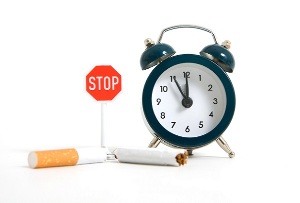
It is difficult to find an adult smoker who does not regret his first cigarette, dreaming of quitting his addiction. An unpleasant smell, discomfort during flights or at work, where they are punished for smoking breaks, condemning the opinions of passersby and household members, harm to health, which is paid for with personal money (in addition, considerable) - thisIt is not a comprehensive list that encourages a parting from the coveted package. With all the disadvantages, people often think about why it is impossible to quit abruptly or if this will only be an advantage.
Inside the smoker
Among ordinary people and doctors, there are two fields that are fundamentally different in their approach to getting rid of nicotine addiction. Some believe that "the tail is not cut into parts", others are of the opinion that if you suddenly quit smoking, the health consequences may be unexpected.
Under the constant influence of nicotine in the body, some natural processes are modified:
- The tissues experience constant hypoxia. Red blood cells combine with carbon monoxide and can no longer carry oxygen. It is very dangerous for pregnant women, especially in the first and last trimesters.
- Immunity is in increased tone. The body is regularly poisoned with nicotine, other harmful components of tobacco, it gets used to defending itself.
- The oral cavity is washed by saliva, which carries away the resins that have settled on the teeth, mucous membranes, the stomach, causing gastritis, other digestive system disorders and nausea.
- The work of the central nervous system is interrupted, the brain is constantly starved of oxygen, the transmission of nerve impulses along the fibers is slowed down.
- A smoked cigarette stimulates an increase in the level of adrenaline, which causes an increase in pressure, dilates the blood vessels and accelerates the heartbeat.
- The brain produces dopamine in response to a puff. The hormone creates the illusion of pleasure, it forms a habit. The longer a person smokes, the more tobacco smoke needs to pass through himself to feel pleasure.
- The blood thickens, the walls of the arteries become brittle. The number of strokes and heart attacks among those who like to climb is much higher than among non-smokers.
A special danger is the simultaneous consumption of alcohol and smoking. The heart and blood vessels experience double stress due to these destructive components. The brain, which consumes most of the oxygen and nutrients supplied by the blood, is first affected by the effects of alcohol and carbon monoxide.
In addition to nicotine, a cigarette contains many harmful ingredients, the most dangerous of which are recognized:
- Benzene.
- Chrome.
- Cadmium.
- Nickel.
- Uranus.
These elements cause cancer of the lung, esophagus, oral cavity, larynx, pancreas.
In men, early loss of sexual potency occurs, at a young age, a slow erection due to circulatory disorders. The quality of seminal fluid is affected, the sperm are less active, which leads to total or partial infertility.
Cigarettes often prevent women from quickly becoming pregnant, the maturation mechanism of the follicle is disrupted, the level of the main female sex hormone - estrogen falls, menopause in smokers accelerates, libido suffers. Often a woman continues to smoke while pregnant, this causes hypoxia in the fetus, the development of pathologies that can be found at birth or later. There is a high risk of preterm delivery, fetal death, and severe toxicosis.
How the body responds to abrupt smoking cessation
It is important to understand what will happen if a person decides to quit smoking abruptly, what the consequences will be. A sharp refusal is difficult to bear, but the recovery is faster. It should be understood that the longer the smoking experience, the more difficult the period of abstinence is usually tolerated:
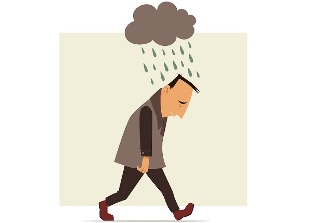
- Day 1. Joy, inspiration, faith in success, the body has not yet understood anything.
- Day 2. The first signs of "withdrawal" begin, the awareness of a change in lifestyle arrives. Irritability appears, I want to smoke.
- Day 3. All thoughts revolve around cigarettes, it is difficult to fall asleep, the feeling of emptiness inside. Rashes, peeling of the skin may appear.
- Day 4. Oxygen in the blood becomes more, it is easier to breathe, sleep may be light, intermittent. Some people notice noise in the head, ears, slight swelling of the extremities.
- Day 5. Peak period, the urge to smoke becomes unbearable, the probability of a crisis is high. Coughing appears, mucus comes out with difficulty, has a dark color and an unpleasant smell. The aromas and flavors take on new nuances, they become brighter, richer.
- Day 6. Sleep is disturbed again, hands shake, mood fluctuates from aggressive to depressed.
- Day 7. The body got rid of the nicotine addiction. From this moment on, any parenting desire is associated only with a habit, a psychological attachment. It is worth eliminating everything that provokes the urge to smoke, simulating familiar situations in a different way. Replace morning coffee with a puff of tea, pick up the Rubik's cube for a phone conversation, etc.
Over time, the body will cleanse itself of decomposition products, remove all accumulated resins and toxins. The volume of the lungs will be restored, the brain will begin to function more productively, clarity of thought will appear and the capacity for learning will increase. Sleep will become deep, full, fatigue, mood swings will disappear.
Immunity drops at first, a person easily catches a cold. Against this background, bronchitis, tracheitis, laryngitis, and stomatitis often occur. The voice may change timbre, become hoarse, hoarse. You must understand the reason for these phenomena and that it is associated with restructuring the body to a nicotine-free regimen. It is advisable to support yourself by taking vitamins, immunostimulants (ginseng, eleutherococcus).
Whether to kick the habit or not

It's definitely worth quitting, the overall benefit far outweighs the temporary drawbacks. To reduce negative consequences, you can:
- Play sports. Physical activity accelerates metabolic processes, blood circulation, improves heart function, improves mood, promotes deep sleep, and stabilizes blood pressure. Older and unprepared people should increase the load gradually, starting with long active walks and gymnastics.
- Check the nutrition. Fill the diet with high-quality healthy products, exclude fast food and other food waste.
- In the first stage, drink a drug that dilutes the sputum, facilitating its excretion.
- Don't drink alcohol. Alcoholic beverages alone are not helpful, under their influence you will want to smoke more.
- Instead of expectorant tablets, a good result is obtained by taking a decoction of the herb coltsfoot, calamus, nettle, helenium.
Each organism is individual, an older person with a number of chronic diseases should consult a doctor when and how to better plan to quit smoking.
In some cases, doctors actually recommend reducing the number of cigarettes, but not eliminating it completely.
Subtle moments
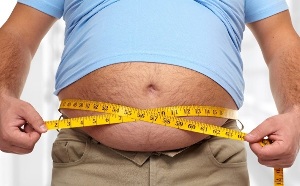
There are situations in which people hesitate to quit abruptly for fear of negative consequences:
- Blood pressure disorder. Hypertensive patients and those with low blood pressure are confident that rejection can worsen their condition. The doctor will help you choose drugs that stop the body's reactions to rejection, and over time the situation will stabilize.
- Overweight. Many men and girls are afraid of gaining weight, some of them really hinder the feeling of hunger, but cigarettes in themselves do not contribute to weight loss. At first, food can compensate for the empty feeling if you want to smoke. The taste is brighter and the food looks more attractive. If you approach it consciously, you can even lose weight.
- Pregnancy. A woman usually learns of an interesting situation at 6-8 weeks, she must immediately exclude a harmful factor, while there will be no harm to herself and the fetus.
- Tuberculosis. It can be psychologically difficult for people to quit smoking, which puts them under stress and delays their recovery. In each case, the doctor will tell you whether to do this during an illness or wait for a cure and forget about cigarettes forever.
The use of marijuana, hashish, is believed to be helpful in quitting smoking. The bronchial tubes and lungs are cleared faster, the nervous system calms down, and the process is easier. There is no objective evidence for this, smoking hashish, marijuana, and other hemp products is no less harmful to humans than nicotine cigarettes.
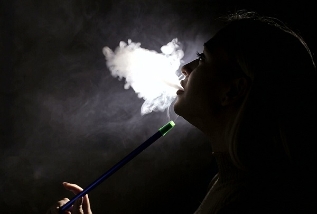
To alleviate psychological discomfort, attempts are made to replace cigarettes with electronic counterparts, hookah, vape. Inhalation of steam saturated with substances of unknown origin (often there is no clear composition for mixtures and filling stations for them), it is very harmful, it is:
- Irritating to bronchial tubes and lungs.
- Contains heavy metals, toxic substances.
- Causes allergies.
- Steam causes bronchopulmonary diseases.
Water pipe smoke outperforms cigarette smoke in carbon monoxide content. All dressings have a pleasant aroma, which encourages a person to inhale more deeply, a large number of substances contained in them enter the blood. The WHO said at a 2008 conference that e-cigarettes have not been shown to be effective as replacement therapy for smoking cessation.
Consequences of an abrupt refusal
The most difficult thing is to go through the cancellation period, psychologically it is difficult for many people to admit that they are always saying goodbye to a part of their life, even if it is negative, many times this action is accompanied by:
- Irritability.
- Feeling empty.
- Decreased body tone.
- Mood swings.
- Impaired concentration, confusion.
- Reduced performance.
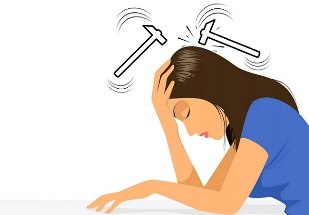
Physiological reactions can include:
- Sleep and appetite disorders.
- Temperature rise.
- Pain, sore throat.
- Start of coughing.
- Headaches, migraines.
- Pressure drops.
- Fast heartbeat.
- Frequent respiratory illnesses.
Depending on the length of service, the number of cigarettes smoked per day, the age and health of a person, the symptoms disappear from a month to a year, gradually losing their severity.
Summarizing
Quitting smoking is a step towards a new free life. Without cigarettes:
- improves health;
- increases self-esteem;
- conflicts with family members who do not smoke are eased;
- saves finances.
There are dozens of benefits to quitting. Of the disadvantages of a strong rejection of nicotine, only temporary psychological inconvenience, a period of abstinence and a short-term deterioration of well-being caused by the restructuring of the body can be noted.
























